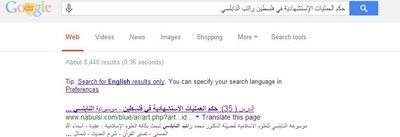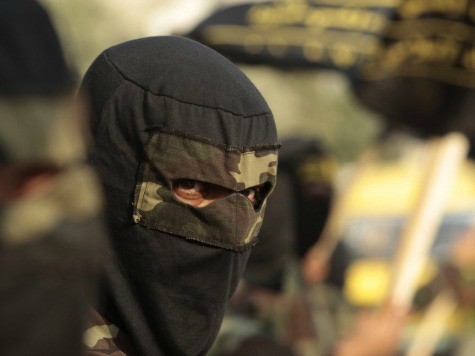A radical Syrian cleric who spent January on a U.S. fundraising tour has erased a 2001 fatwa endorsing suicide bombings from his website.
The Investigative Project on Terrorism (IPT) uncovered Sheikh Mohammad Rateb Nabulsi’s fatwa last month, during his visit to raise money for two Syrian-American groups. Nabulsi visited 15 cities around the country throughout January as part of the “Syria: A Nation In Need” tour that was co-sponsored by the Syrian American Council (SAC) and Shaam Relief.
Nabulsi’s April 23, 2001 fatwa drew a distinction between those who commit suicide out of a sense of despair and the “Fedayeen” who “presents himself as a sacrifice for his religion and his Umma.”
He extensively cited two prior fatwas written by other radical clerics in support of his position. Nabulsi also said that “all the Jewish people [in Israel] are combatants” who can be targeted by suicide bombers.
“They do not have a career that a military rank does not encounter: doctor, pilot, engineer, for example, is a tank commander. Every civilian, citizen,” he wrote. “They do not have a regular army; they have a reserve army, and all the people can fight, so this is essentially an entirely aggressive entity from A to Z. This is the Sharia ruling.”
The fatwa was still available on his Arabic website when the IPT report was published Jan. 14. A more recent review of his website revealed that it had been taken down.
 Evidence of the fatwa’s existence can be found in an Arabic Google search. Its title appears in the search, but clicking on the link leads to a blank page. The entire fatwa can still be found on an Arabic discussion group page.
Evidence of the fatwa’s existence can be found in an Arabic Google search. Its title appears in the search, but clicking on the link leads to a blank page. The entire fatwa can still be found on an Arabic discussion group page.
There seems to be no explanation for the fatwa’s disappearance. If Nabulsi’s views have evolved, and he no longer believes that suicide bombings can be justified theologically, he has not said so. Rather, this appears to be a poor attempt to hide his own radical ideology.
This article originally appeared at The Investigative Project on Terrorism.

COMMENTS
Please let us know if you're having issues with commenting.